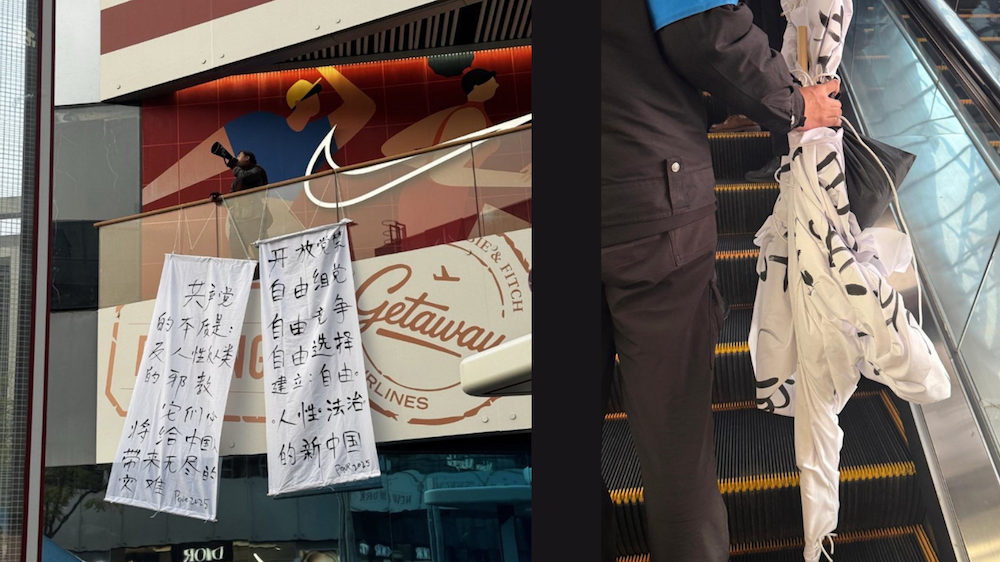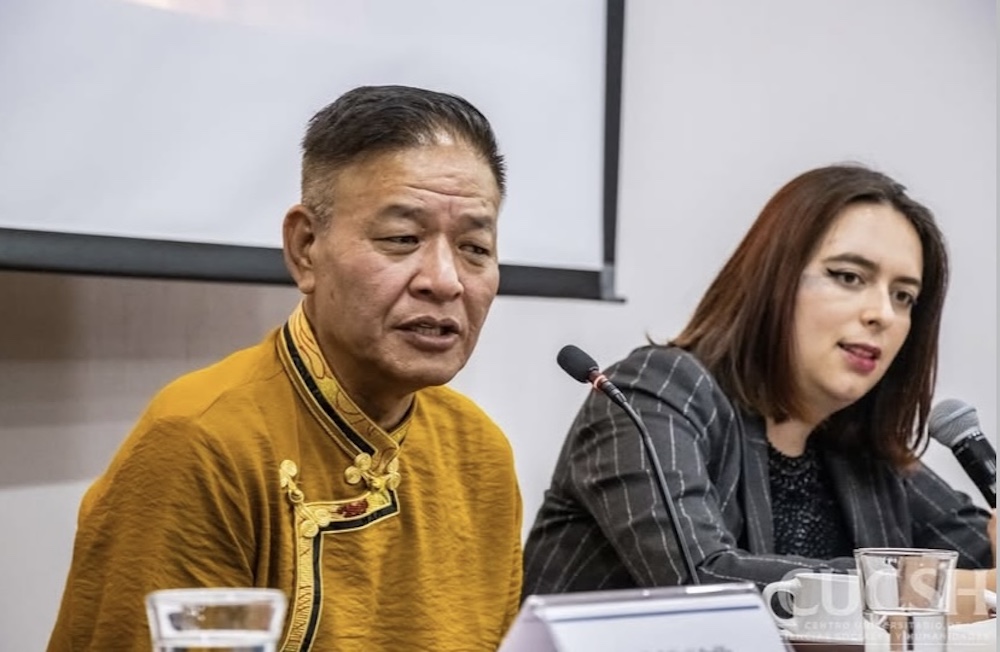On the 22nd of February 2004 the elderly former political prisoner Dawa, or ‘Tsemonling’ Dawa, passed away in Lhasa. Dawa personified a generation of men and women in Lhasa who from the 1980s, and throughout the 1990s, eased the lot of many political prisoners held in and around Lhasa in the Tibet Autonomous Region (TAR) by distributing food to them. While most of this work, along with most names, went unreported, the death of Dawa allows some of this story to be told. Born in Tsemonling in Lhasa, Dawa was a monk at Sera monastery in the so-called ‘old society’, who continued to be a monk till the end of his life, unlike many other former monks who married after having been forced to disrobe during the Cultural Revolution. Dawa died, aged 67 in Lhasa, on the evening of 22 February 2004, the second day of the Tibetan lunar year.
Dawa, like most people of the period experienced firsthand the upheavals that took place after 1959 during the `Great Leap Forward’ and the Cultural Revolution. He was sent to do hard labour at Nyachen hydro-power station in Lhasa and at the construction of a power plant in Payi, Kongpo, in the 1960s. Later, after his return to Lhasa, he was able to make a living working as a stonecutter.
During the 1980s, with the introduction of policies that led to the opening up of the TAR and before the mass demonstrations of the late 1980s, Dawa is reported to have been politically active. He is said to have called for a Free Tibet during the first visit to Tibet of a delegation sent from the Tibetan exile administration in India in 1979. This resulted in Dawa being questioned by the authorities but not detained for any significant length of time. In the mid-eighties, he was arrested again and held for six months in Gutsa detention centre.
On 05 March 1988, after reportedly unsuccessfully attempting to dissuade Drepung monks from going to a demonstration because he feared for their safety, Dawa went with a Tibetan flag to stage a solo demonstration in the Barkhor, the spiritual and cultural heart of old Lhasa. He was arrested, detained in Gutsa detention centre and then transferred to Trisam re-education through labour centre, where he was due to serve a 3-year administrative sentence. Having served two years, he was released on medical parole because of intestinal problems, which were later operated on.
In June 1997, Dawa was once more arrested, possibly in relation to his involvement in the collection and distribution of food for political prisoners held in prisons and detention centres in and around Lhasa; activities viewed with suspicion by the authorities and increasingly impeded. However, it is also possible that he was arrested because the authorities feared disruption during events marking the handover of Hong Kong or during the birthday of the Dalai Lama.
He was released on June 2000 and stayed in his home in Lhasa. He reportedly suffered a stroke in 2003. Friends his age remember him as a selfless man whose actions didn’t derive from any yearning for name or fame. One remembers, “He helped people regardless of whether they were related to him or not and he was known by other prisoners to give his own clothes to prisoners who didn’t have enough themselves and after his release he used to take in other released prisoners who in turn cared for him”.
A former political prisoner whom Dawa first befriended while in Gutsa detention centre in Lhasa in 1990, recalls his companion:
“I was together with Gen Dawa-la in Gutsa in 1990 for a few months. That time he was working in the prison cleaning the rooms and watering the flowers. By the time I was transferred to Sangyib prison, Gen Dawa-la had been released and then he started to come to our prison to deliver food. He would come with boiled potatoes and fried meat, and sometimes sweetened rice porridge with butter, and often `Batsa magu’, a Tibetan speciality of boiled lumps of dough served with melted butter and dried cheese. In the beginning, he went around with huge pots filled with the food, which he carried in a hired vehicle. Later the prison guards told him that he shouldn’t come like that, and from then on, he started to come with large bags full of food divided into smaller plastic bags. Two or three prisoners would then take larger amounts of plastic bags and distribute them amongst the other political prisoners. Later, after I had received my administrative sentence and was serving my term in the “education through labour” camp in Toelung, he also came there to deliver food. It wasn’t just us whom he came to bring food to; he used to go to all the various prisons to visit the political prisoners.
“Gen Dawa-la was someone who was always cheerful, full of jokes, always laughing and relaxed. While in prison he didn’t look like someone who was imprisoned. This really helped us because we were very young when we were imprisoned, and we were missing our homes. Seeing him and listening to his cheerful conversations helped us to cheer ourselves up a little bit, because looking at him we realised that we were in the same situation. He would teasingly say things like that we were quite well off being in prison. “Here we don’t have to worry, we have sentries guarding us, no one can harm us. We are given food early in the morning, and we don’t have the worries and pressures of society outside these walls.” When I visited him at his home in Ramoche after his release, he showed the same cheeriness. He told me that he was busy preparing for another prison term, though, he said, “I am not sure when they will be coming to call me”. Otherwise, he was fairly busy outside prison. Almost everyone in Lhasa knew him, and he was normally called on by families who had a funeral to deal with. Gen Dawa-la knew exactly what prayer services had to be organised, what things had to be arranged around these offerings, what one had to give to the monks who are called for these occasions etc. So Dawa la would be in charge and the people in Lhasa knew that he was the best person to do this task.
“Gen Dawa la used to help political prisoners after their release to find jobs and to find a place to stay. With his many contacts he would sometimes manage to give someone shelter with someone he knew.
“With his death, former political prisoners lost a friend, someone who gave us confidence, who helped many of us to find a place to live and a place to work and also someone whom we could really trust. If there is one thing important during the difficult period after your release, then it is someone to whom you are able to open your heart to, someone you can fully trust.”









